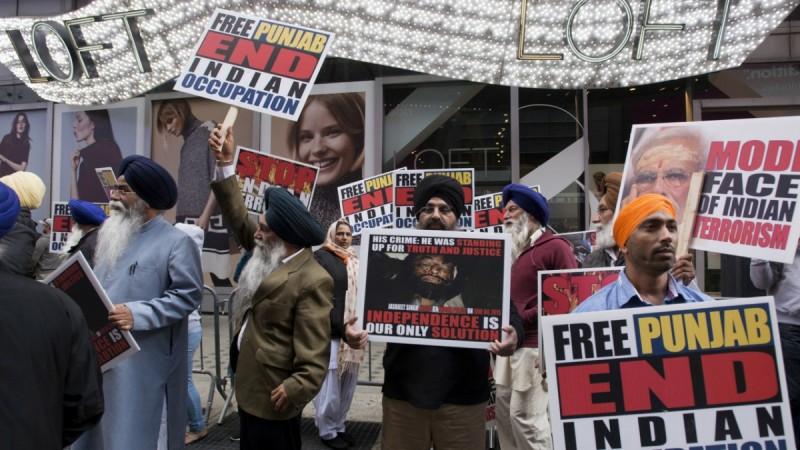
The incidents of Sikh pilgrims being recruited by Pakistani intelligence agencies for pushing the pro-Khalistan movement have become a matter of concern for Indian security establishment. The issue of ISI supporting the "Referendum 2020" campaign has come to the fore a week before India meets Pakistan to discuss Kartarpur Corridor operations.
While Pakistan has banned the pro-Khalistan activities, a senior Indian security official revealed that the Inter-Services Intelligence (ISI) has been promoting the agenda under the guise of Sikh pilgrimage.
He revealed that Indian Sikh Jathas, who visit Pakistan under the Bilateral Protocol on Visits to Religious Shrines of 1974, are targeted by the separatist organisation. "Sikhs coming directly to Pakistan from Canada, UK and Germany are tutored on the so-called referendum campaign, which is largely funded by Islamabad," he told the Hindustan Times.

The official website of Referendum 2020 describes the movement as "a campaign to liberate Punjab, currently occupied by India." Last year, India had announced the development of Kartarpur Sahib Corridor. It will connect the final resting place of Guru Nanak Dev - Darbar Sahib in Pakistan with Dera Baba Nanak shrine in India.
Both the countries are scheduled to meet on July 14 to discuss infrastructure, logistics along the proposed corridor.
Social media and ISI
It is reported that social media has played a major role in the spread of the pro-Khalistan movement. Authorities tracking the movement have said interests have spiked after both the countries announced the opening of Kartarpur corridor in 2018.
"There has been a greater focus on spreading Khalistani propaganda online," a senior fellow at Observer Research Foundation (ORF), Sushant Sareen, told The Print. "It's the cheapest, most cost-effective way to spread propaganda," he added.
"There are Pakistani fingerprints all over this," said Sareen regarding the revival of the Khalistan movement through protests and petitions like Referendum 2020. "For instance, Khalistan support groups in Canada are openly supported by Pakistani diplomats who are undercover ISI agents," reported The Print.

In March, a man hailing from Punjab's Pakistan border region Fazilka was arrested by Amritsar State Special Operations Cell (SSOC) for providing information on the Indian Army units along the Indo-Pak border. The accused confessed that he passed official information to Pakistan Intelligence Operatives over WhatsApp in exchange for money.
Last month, a man hailing from Punjab's Moga district was arrested for passing military secrets to ISI. Investigation revealed that Sukhwinder Singh Sidhu reported the movement of Indian Army units to Pakistan intelligence agency while residing on the periphery of the army cantonment.
Sidhu also used to propagate the referendum campaign among Sikhs in Punjab on social media platforms, HT reported. He came in contact with the ISI agents after he visited Pakistan on the occasion of Guru Parab (celebrating Guru Nanak's birth anniversary) around four years ago.
The senior officials have said that the pilgrims to Gurudwara Darbar Sahib in Kartarpur will be screened for security threats once the corridor opens for public. Since the pilgrims will have to return to their own country on the same day of the pilgrim, security officials consider the chances of recruitment by ISI agents to be limited, reported HT.















